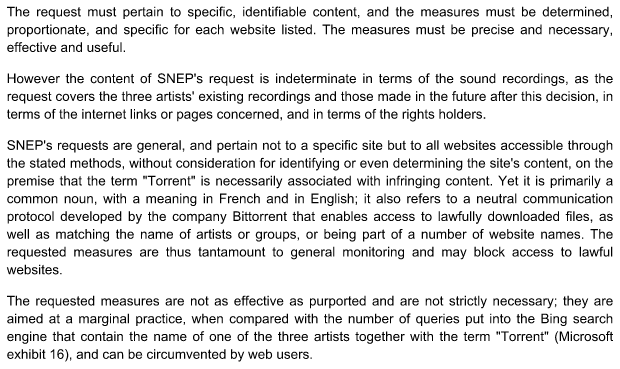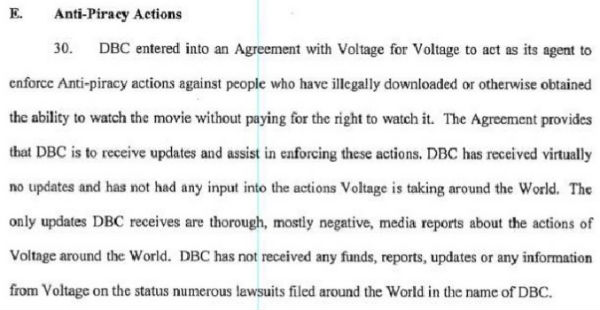Megavideo Lawyer Slams TV Piracy Court Ruling
mercredi 20 juillet 2016 à 17:49 While Kim Dotcom’s Megaupload has been the focus of thousands of headlines over the past half decade, the tech entrepreneur also had many other successful ventures in his portfolio.
While Kim Dotcom’s Megaupload has been the focus of thousands of headlines over the past half decade, the tech entrepreneur also had many other successful ventures in his portfolio.
Among them was Megavideo, a file-hosting service that allowed users to upload video in much the same way as YouTube does today. The ad-supported platform was free to use for any video up to 72 minutes in length, with content of longer duration requiring a subscription to watch in full without waits.
Megavideo disappeared in 2012 following the raids on Megaupload but that didn’t stop Italian TV outfit RTI (Reti Televisive Italiane) suing for copyright infringement. As reported yesterday, a Rome court has just ordered Megavideo to pay $13.4m in damages after the company reportedly failed to respond to takedown notices.
However, the decision is an extremely unusual one. In Megavideo’s absence the court found that the copyright holder’s takedown notices (which listed only TV show titles and contained no URLs) were sufficient for Megavideo to take action. The court also found that video categorization and ad placement undermined Megavideo’s safe harbor.
Speaking with TorrentFreak, Megaupload/Megavideo lawyer Ira Rothken says that the ruling represents a real cause for concern for other companies operating in the same sector.
“The Rome court apparently ruled on this Megavideo case in a default context, unknown to us, and the result is unworkable caselaw on ISP secondary copyright liability,” Rothken explains.
“The court used user-generated categorization and garden variety ads like those found on YouTube and other mainstream cloud sites as adverse factors. Without categories and ads there likely could be no user-generated content sites.”
But unsurprisingly it’s the issue of the URL-free takedown notices that attracts the most attention. In the United States and across Europe, it’s an accepted norm that takedown notices must be specific about the content to be removed. That the Italian court decided otherwise presents a real danger for service providers.
“It was not explained in the Rome ruling why the copyright owners couldn’t provide URLs in the takedown notices and no burden analysis based on competent evidence was done by the Court,” Rothken says.
“The Rome Court’s ruling not requiring specific URLs in cloud takedown notices contradicts US caselaw in the United States in cases which permit ISPs to ignore takedown requests that do not contain a specific link.”
Rothken points out that in US courts the burden is on copyright holders to police their works online and that service providers are not responsible for deciding what is and is not infringing.
“The ISP has no duty to investigate and providing only a title without a URL would require investigation and the making of ad hoc copyright assessments,” he adds.
But that’s exactly what Megavideo would have had to do in the scenario outlined by the court. Without specific URLs being provided in takedown requests, Megavideo would have been left to trawl its databases for titles of videos that contained the same or similar words cited by copyright holders, a notoriously inaccurate method of detecting infringing content.
“Under the Rome Court’s ‘no URL’ requirement, some enterprising plaintiff can do a takedown notice for some video clips called “the Greek wedding” with no URL provided and no one will know what Greek wedding clips they are referring to,” Rothken says.
“Worse, to disambiguate the takedown request the ISP would need a legal copy of the alleged video for comparison purposes obtainable through no court-described method.”
However, even in the event that the original video was successfully obtained from the copyright holder, matters would not be straightforward.
“The ISP would need a warehouse full of folks that would need to watch the target video and thousands of cloud-stored videos and make ad hoc assessments on infringements versus third-party works versus fair use versus licensed uses to avoid overbroad deletions or copyright lawsuits,” Rothken warns.
Aside from the obviously curious details of the ruling, it’s a little surprising that other companies invested in the sector, YouTube for instance, haven’t become involved in a case that appears to have implications for them. Nevertheless, the court has spoken and Rothken says that its ruling poses a real cause for concern.
“This type of secondary infringement rule if allowed to stand arguably violates EU freedom of expression and copyright-related treaties, amongst other things,” he concludes.
Source: TF, for the latest info on copyright, file-sharing, torrent sites and ANONYMOUS VPN services.
 In recent years the U.S. Government has taken an aggressive stance towards copyright infringement, both at home and abroad.
In recent years the U.S. Government has taken an aggressive stance towards copyright infringement, both at home and abroad. For years, entertainment industry groups have been demanding that search engines do something about “pirate sites” showing up in their search results.
For years, entertainment industry groups have been demanding that search engines do something about “pirate sites” showing up in their search results.
 Movie studio Voltage Pictures is
Movie studio Voltage Pictures is 